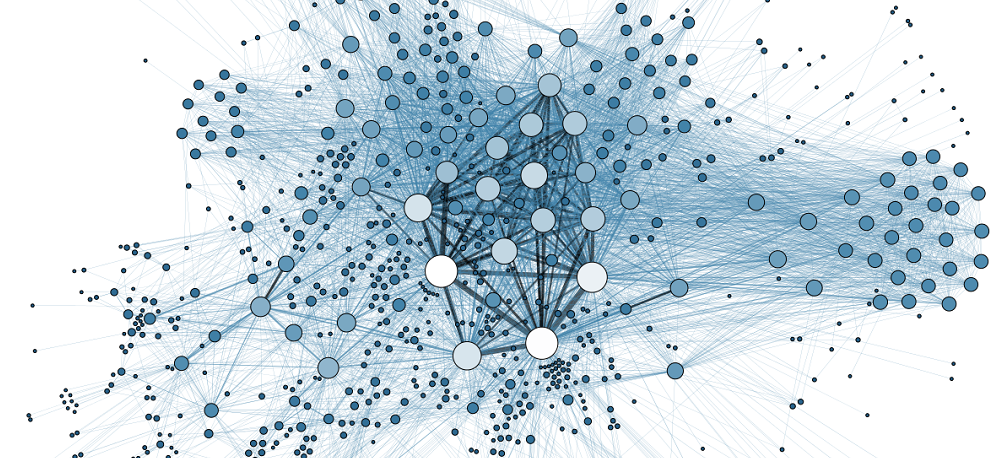
This course deals with benchmark applications of network methodologies and analysis in social, health, business and political research. It surveys diverse uses of network analysis to show how it contributes to theory development and research agendas in multiple disciplines.
This course assumes some experience of working with network data using Excel or similar software. Participants should also have a basic understanding of statistics and regression.
This course is co-taught by:
Dr. Petr Matous, (Complex Systems Reseach Group,The University of Sydney), has been organising experimental interventions and social surveys in diverse communities across Asia and Africa to empirically elucidate the role of social networks in contexts constrained by limited resources or environmental disasters. Dr Matous applies novel statistical methods to these unique data sets to model the mechanisms of dynamic interactions between interpersonal or inter-organisational networks and their technological and natural environment.
Associate Prof Malcolm Alexander is one of Australia’s leading sociologists working in the area of social network analysis and mathematical sociology. He made intensive studies of Australian business elite networks of the 1990s directed to public issues of corporate governance and investor capitalism. In recent years he has developed network analysis in new directions through his focus on 2-mode network mapping and investigations of elite networks in the civic cultures of Australian cities. He has published numerous articles in sociological journals, is the editor of two books and was also an editorial member of the Journal of Sociology and executive member and Treasurer of The Australian Sociological Association.
Social scientists in a variety of disciplines are using network analysis and modelling to approach significant research questions from a new angle. Alongside this, the explosive rise of the internet and social media has opened up whole new fields of research. The established research community of Social Network Analysis (SNA) provides a methodologically coherent platform for all both these research trajectories.
This course deals with the principles and major developments in network visualisation, statistics and modelling and benchmark applications related to social, health, business and political research. It considers the full array of methodologies used in social network research and the data analysis needed for each. The course builds on the foundation given by the ACSPRI level 1 course, Introduction to Social Network Research and Analysis. It assumes familiarity with the UCINET and NetDraw software used there and examines and uses other SNA packages (NodeXL, Gephi). The course will provide an introduction to advanced network modelling and visualization methods in R packages. No prior knowledge of R is expected – sufficient time will be dedicated for the participants to become familiar with this platform.
The course concludes with full discussions of current social network achievements and opportunities in social, health, business and political studies based on the interests, requirements and needs of course participants. This course provides a good basis for the ACSPRI course on Big Data Analysis for Social Scientists and other ACSPRI courses using R.
Day 1
Network data and social network research
These sessions review the collection, structure and handling of network data and the principles and research practices used in social network research.
Day 2
Visualisation, exploratory and statistical data analysis
These sessions cover visual and numeric measures and metrics for network data and basic statistical hypothesis testing.
Day 3
Analytic tools in the R environment: Exploratory data analysis and the path to statistical modelling.
These sessions introduce the basic network packages available in R. Particular attention will then be given to packages for network modelling and ERGM.
Day 4
Benchmark studies in Social Network Analysis
These sessions dissect the methodologies and analytic approaches of 2 or 3 benchmark studies most related to participants’ needs. Where possible we replicate the analyses in these studies and discuss the theory development suggested by the studies.
Day 5
Consultations and open discussion of participants’ projects.
- It is recommended that participants bring and work on their own laptops.
- You will be advised about software before the start of the course.
- Many of the software packages are available on Mac however you should have a Windows emulator on your Mac to deal with the few that do not provide a Mac version.
The course is geared to participants who have done the Level 1, Introduction to Social Network Research and Analysis or have equivalent experience.
- Robins, G. (2015). Doing social network research: Network-based research design for social scientists, Sage.
- Valente, T. W. (2010). Social networks and health : models, methods, and applications. New York, Oxford University Press.
- Kolaczyk, E. D. and G. Csárdi (2014). Statistical analysis of network data with R, Springer.
Q: Do I have to have done the Introductory course to do this course?
A: If you are already working with network analysis you will be able to come straight into this course as the initial sessions consolidate and extend skills covered in the Introductory course. You should consult the course instructor if you are uncertain.
Q: Do I need to have a project already started for this course?
A: There is no requirement to have your own project for this course. The benchmark studies and the example datasets are sufficient to learn with. Participants with their own projects will get specialised input and advice from the course instructors.
Q: How mathematical is this course?
A: This course is set up for social scientists and presents network analysis in non-mathematical terms. We provide laypersons explanations of any mathematical materials encountered during the course.
Q: Can I do network analysis on a Mac?
A: Many of the software packages are available on Mac however you should have a Windows emulator on your Mac to deal with the few that do not provide a Mac version.
The instructor's bound, book length course notes will serve as the course texts.
